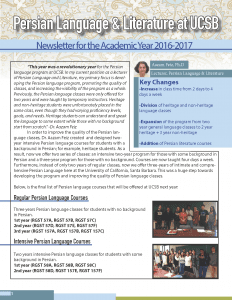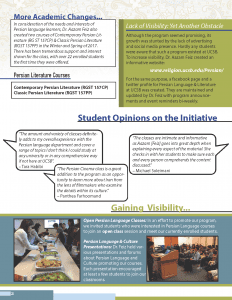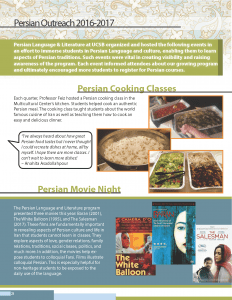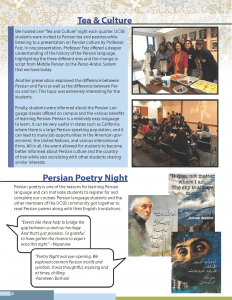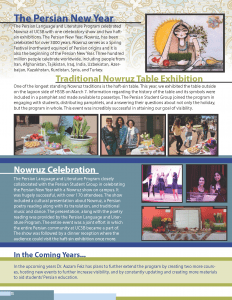Add to Calendar
When:
October 30, 2019 @ 3:00 pm – 4:00 pm
America/Los Angeles Timezone
2019-10-30T15:00:00-07:00
2019-10-30T16:00:00-07:00
Where:
HSSB 3041
Roberta Mazza, Tipton Distinguished Visiting Professor in Catholic Studies, presenter
Will Ellison, respondent
“The Corrupting Text: Reading, Interpreting, and Exchanging Manuscripts”
engaging with object theory (Bennett’s Vibrant Matter; Hodder’s Entangled)
Followed by a reception/happy hour
In “Thick Description,” Geertz writes that “doing ethnography is like trying to read (in the sense of ‘constructing a reading of’) a manuscript – foreign, faded, full of ellipses, incoherencies, suspicious emendations, and tendentious commentaries, but written not in conventionalized graphs of sound but in transient examples of shaped behaviours” (1973: 10). The aim of this presentation is to apply ethnographic methodologies in order to read (in the sense of deconstructing “transient examples of shaped behaviours”) what I am doing when I decipher ancient manuscripts, and to study the nature of texts.
Through the description of my profession, papyrology, I will describe the relationship between academics (papyrologists), the objects they study (ancient manuscripts) and their owners (institutions or private collectors). As my description will show, ancient manuscripts’ reading generates complex entanglements that I propose to read as guided by the “corrupting” essence of manuscripts, shifting agency from humans to things (Bennett 2010; Hodder 2012). Manuscripts are constantly in the process of material corruption induced by aging and manipulation, and of textual, philological corruption generated by the scribes; finally, manuscripts have the power to corrupt those who want to possess them as interpreters or collectors. By revealing manuscripts’ corrupting power, my description questions current politics and ethics in cultural heritage preservation, and academic professional practices.
C. Geertz, The Interpretation of Cultures: Selected Essays (New York 1973)
J. Bennett, Vibrant Matters: A Political Ecology of Things (Durham and
London 2010)
I. Hodder, Entangled: An Archaeology of the Relationships between
Humans and Things (Oxford 2012)
Roberta Mazza is an ancient historian and papyrologist working in the Department of Classics and Ancient History at the University of Manchester. Her main interests are Graeco-Roman Egypt, with a focus on the rise and spread of Christianity in the Roman Empire. She is also a Research Fellow of the John Rylands Research Institute and Academic Honorary Curator of Graeco-Roman Egypt at the Manchester Museum.
She has an interest in cultural heritage issues related, in particular, with the circulation of papyri and other Egyptian objects on the antiquities market, and she writes about this topic on her blog, Faces & Voices, which has been very influential in the public discussion of ethical practices with artifacts.











